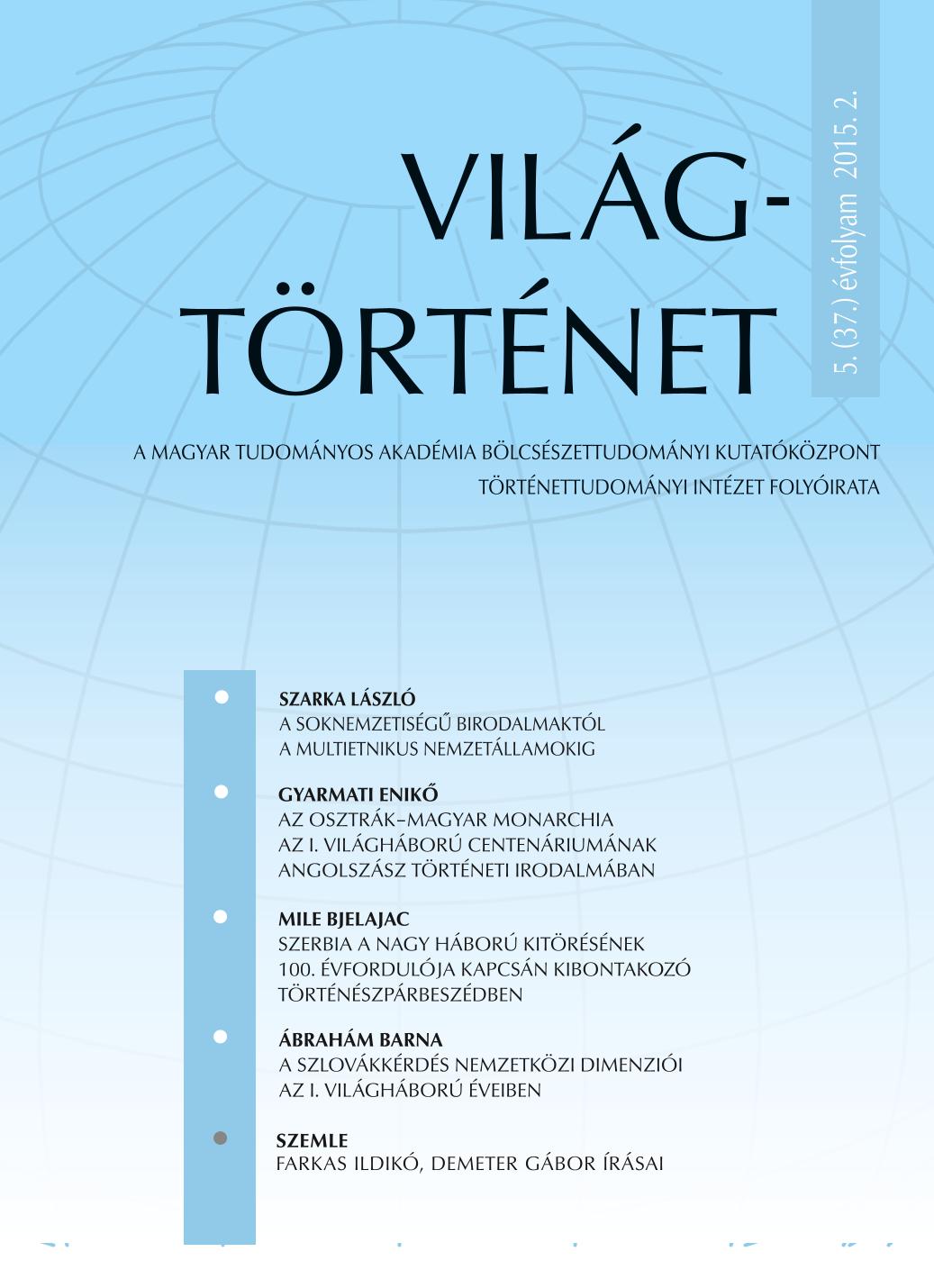Szerbia a Nagy Háború kitörésének 100. évfordulója kapcsán kibontakozó történészpárbeszédben
The Role of Serbia in the Current Historical Debates on the Origins of the First World War
Author(s): Mile BjelajacSubject(s): Pre-WW I & WW I (1900 -1919)
Published by: Magyar Tudományos Akadémia Bölcsészettudományi Kutatóközpont Történettudományi Intézet
Keywords: Fisher’s theses; revisionism; rivalry among the powers; exporting nationalism and terrorism; Serbian government; Black Hand
Summary/Abstract: The discussions and controversies on “war guilt” and the origins of WW I have been lasting for almost century now. Debates have not only been focused on scholar matters as ideological and political reasons have had considerable impact on the scholar fi eld ever since. However, the once achieved consensus by historians over Fisher’s theses have been challenged recently by few historians. The new (old) claims that Germany or Austria–Hungary did not solely bear full responsibility for the outbreak of the WW I in July 1914 are welcomed today by certain European media and public. The new trends of revisionism have at least several common features: 1) actually no new pieces of evidence have been brought to the light by these works. Instead, the authors revive some interwar revisionists’ claims and arguments or misinterpret standard scholar accounts; 2) vehement rejection of the standard explanations how rivalry among the powers paved the road to the conflict, as well as why one or two among them calculated that summer of 1914 was suitable moment to settle accounts and regain dominance over the others; 3) in order to endorse their new (old) thesis and findings, some authors put aside or brush away everything that could challenge once established arguments and unfolded evidences by the selective usage of sources; 4) behind the slogan that all sides bear equal share of responsibility in 1914, there is a tendency to put particular blame on Serbian nationalism and its Russian endorsement probably of actual political reasons. When the supposed or even “decisive” role of Serbia is in question, the new wave put emphasis on several points. The authors have insisted that 1903 was the turning point when Serbia allegedly ceased to be Austria’s client and turned to Russia for the first time. In addition, that small country has persuaded its “Načertanije” as a “blue print” for its national goal from 1844 up to 1918 (Greater Serbia). There was no difference how Serbia handled national aspirations in the Ottoman South or in Bosnia and Herzegovina. Serbia was responsible for “exporting” nationalism and “terrorism” (Al Kaida style) and instigate its South Slav brothers on disobedience to the Monarchy. In other words no other national movement (inclusive Hungarian) has ever jeopardized Dual Monarchy, but South Slav. And “consequently” South Slav movement was not existing before 1903 (which is against facts). In addition, Serbian government was fully aware of the Sarajevo conspiracy and even was involved in planning (which cannot be proved unambiguously). For the purpose some authors do not hesitate to link Serbian Government and secret organization “Unifi cation or Death” (Black Hand), (although there was a great rivalry between them for power). According to these authors, there is no doubt that colonel Apis was the mastermind behind the plot in Sarajevo and young Bosnians were simply the tools. Some writers also put that Young Bosnia was only off shoot of the Black Hand in spite latter was created well after youth movement in Bosnia. Further on, the revisionists claim that throughout the July Crisis Serbia allegedly adopted fi rm and rigid attitude towards Austrian (modest and acceptable) ultimatum because she was encouraged by Russia (France and Britain). Serbia willingly risked European war. On the other side Austria had every moral right on revenge. To claim that “Serbia bore the greatest responsibility for the outbreak of WW I” and that “Serbian nationalism and expansionism were profoundly disruptive forces and Serbian backing for the Black Hand terrorists was extraordinary irresponsible” required many evidences to be put aside or brush away, on the first place all those dealing with Austro–Hungarian strategic planning on the Balkans or testimonies of the Austrians themselves.
Journal: Világtörténet
- Issue Year: 2015
- Issue No: 2
- Page Range: 217-239
- Page Count: 23
- Language: Hungarian

